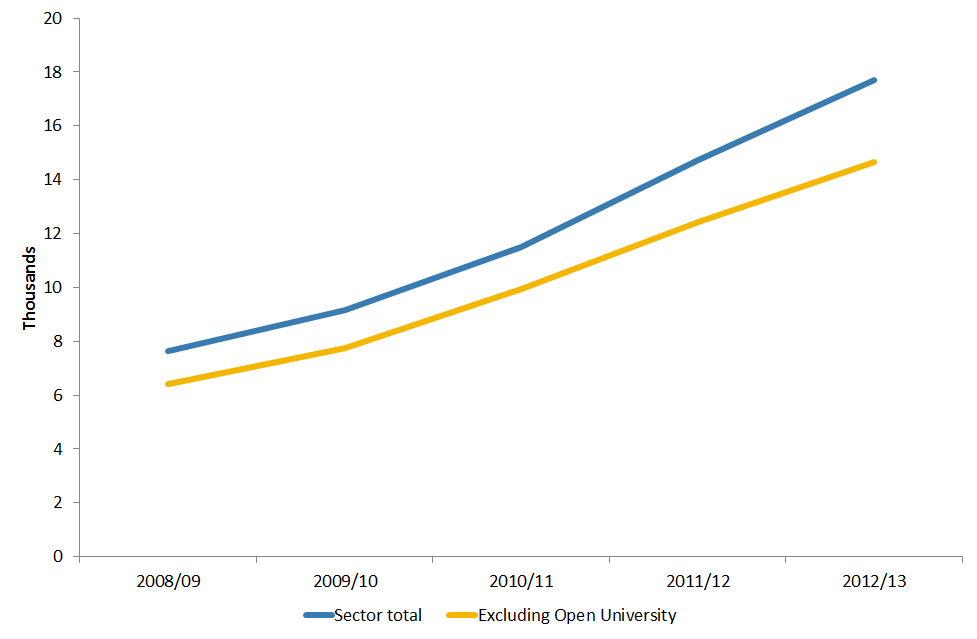Supporting students with mental health issues
23 Nov 2015
Matthew Williams, IES Research Fellow
 Over recent years there has been better recognition of the economic and social costs of poor mental health among the population. Improving mental health has also become an increasing political priority, illustrated for example by the recent appointment of a Minister for Mental Health to the full Shadow Cabinet. At the same time, public attitudes have been changing for the better, leading to a more open culture in relation to mental health.
Over recent years there has been better recognition of the economic and social costs of poor mental health among the population. Improving mental health has also become an increasing political priority, illustrated for example by the recent appointment of a Minister for Mental Health to the full Shadow Cabinet. At the same time, public attitudes have been changing for the better, leading to a more open culture in relation to mental health.
IES has a long track record of researching mental health at work and recently undertook research for the Higher Education Funding Council for England (HEFCE) to investigate how higher education institutions provided support for students with mental health problems and/or other impairments with intensive support need. The research, conducted with research partners at Lancaster University, involved a literature review and case study visits to 12 institutions.
The number of disabled students in higher education has been rising rapidly over the past five years, and the number declaring a mental health problem has more than doubled (see Figure 1). Across all institutions, the proportion of students who declared a mental health problem was 1.4 per cent in 2012/13, although this was felt to be only a small proportion of the number of students actually experiencing mental health problems.
Figure 1: Number of disabled students in higher education

A key challenge for institutions has been encouraging disclosure of problems by students, and particularly early disclosure, so that the institutions can plan support effectively; late disclosure could result in students not having support in place, which could in turn affect their academic performance and retention. Case study institutions stressed that disclosure of a disability or mental health problem was separated from the admissions process, but recognised that students may be anxious about declaring a problem for fear that it may act against them. They had generally taken various steps to encourage disclosure, including awareness-raising campaigns, involving disability and mental health advisers in open days and Freshers’ Week and peer mentoring/support, and had numerous ways for students to disclose before and during their studies.
Common features of support approaches
In supporting students who were known to have a mental health problem, there was a commonality of approaches across the institutions visited. There was generally a disability support team located within student services, with a number of disability advisers who supported students; in some institutions there were specialist mental health advisers while in others, advisers dealt with students across the range of impairments that may lead to a support need. Disability or mental health advisers would be involved in a range of support activities, including:
- Pre-admission support for applicants who had disclosed an impairment on their application, or more general outreach work.
- Induction support and awareness-raising for new students, and triaging of new students.
- Assisting with applications for Disabled Students’ Allowance (DSA), which gives financial help to students who have extra costs while studying because of their disability.
- Developing specialist responsive support packages and ensuring that they are implemented.
- Crisis prevention and management.
- Wider wellbeing activity.
Where students were in receipt of DSA in relation to mental health problems, DSA generally paid for one-to-one specialist mentor support, provided either by in-house mentors or an external agency, and typically for one hour per week during the academic year.
In addition to specific and individual support through the disability support team, there was also wider, more general support provision. All institutions visited had a counselling service available to all students, which provided time-limited counselling support with onward referral to appropriate statutory services if necessary. It was noted that counselling services were seeing more students with severe and enduring mental health problems, whereas in the past the services had been dealing more with transition, homesickness and relationship issues. Some had introduced programmes aimed at preventing issues arising in the first place, through improving general health and wellbeing among students and building resilience.
There was a recognition that some support needs could be anticipated through course design, and a number of institutions had introduced inclusive curricula methods such as placing materials into the virtual learning environment before classes and audio/video recording lectures.
Introducing, or further developing, inclusive curricula was seen as a key challenge facing institutions. In the face of future funding changes, and with increasing demands placing additional pressure on resources, developing inclusive curricula can help institutions provide more support using fewer resources. Furthermore, introducing or further developing proactive measures to reduce demand for support, such as wellbeing and resilience initiatives, can also assist in making limited resources stretch further.
Key role of academic staf
Outside of the specialist provision from disability advisers and counselling services, wider university services had an important role to play. Academic staff were seen to have a key role in supporting students with mental health problems or other impairments. They could have important roles around communication, education and guidance, as well as involvement in pre-entry activities and attendance monitoring to help spot any emerging problems. Estate departments and accommodation teams had a significant role, for example placing students with mental health problems in quiet accommodation blocks and ensuring hall wardens are alert to any particular needs. Similarly, library support could include quiet work spaces or separate
rooms to help reduce stress. Chaplaincy staff played a role as a first point of contact and provider of informal support, and Students’ Unions and local Student Minds also played an active role in supporting students through buddy initiatives and wellbeing campaigns, and may have involvement in the development of institutional policies and strategies.
The involvement of academic staff varied both across and within institutions. In some institutions there were members of staff with a specific remit to work with disabled students, either academic staff with additional support responsibilities, or disability
advisers assigned to and located in particular departments or faculties. Improving internal links between academics and support staff was seen as a key issue; there was often a disparity between the understanding and knowledge around disability issues of academics compared with staff from the disability support teams, and improving the relationship could increase the
holistic nature of support for students. Disability awareness training for academic staff may also be effective.
Support networks
Universities do not operate in isolation and their support activity is complemented by that from the NHS and other statutory services. All case study institutions were working with external agencies such as GP practices, NHS mental health services and voluntary organisations, and this was felt to be an important part of the support network. Some institutions were more strategic in their relationship with external agencies, for example having services present on campus or being involved in wider steering groups, while others relied on more ad hoc individual-level relationships which were at the mercy of staff changes on both sides.
Developing more systematic relationships with external agencies could bring benefits through facilitating access to more specialist and expert support for students, and allowing both parties to gain a better understanding of each other; some institutions felt that statutory services could lack awareness of student life. While developing relationships and increasing partnership working could have time and resources implications for institutions, the costs may be more than outweighed by the resulting savings in other support areas.


